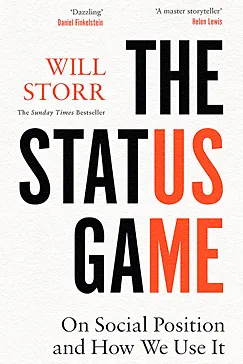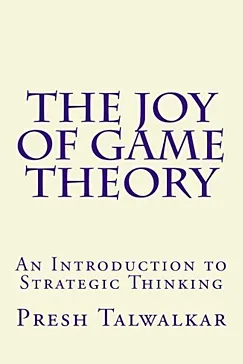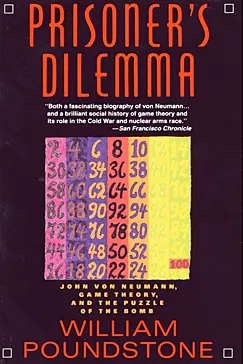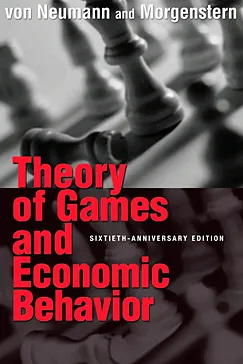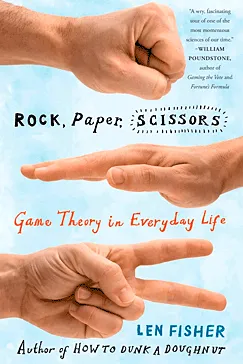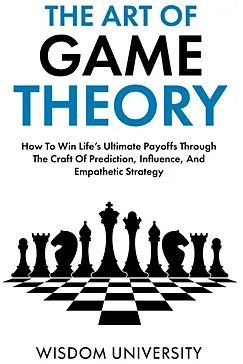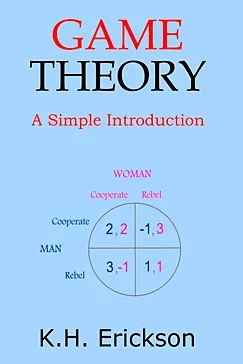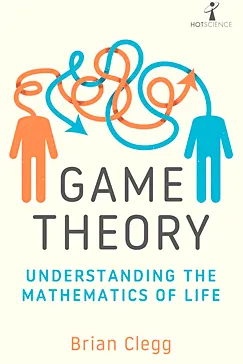Book rating updated 20.07.2024
The Art of Strategy
Avinash K. Dixit, Barry J. Nalebuff
Dixit and Nalebuff offer an accessible introduction to game theory and its practical applications in everyday life. Using relatable examples and case studies, they explain fundamental concepts like dominant strategies, Nash equilibrium, and backward induction. The book covers topics such as pricing strategies, negotiations, and political maneuvering. The authors demonstrate how game theory can provide insights into diverse situations, from business competition to social interactions.
A Beautiful Mind
Sylvia Nasar
This biography of mathematician John Nash provides a compelling narrative of genius, mental illness, and recovery. Nasar traces Nash's groundbreaking work in game theory, which revolutionized economics and earned him a Nobel Prize. She details his struggle with schizophrenia and eventual recovery. The book offers insights into the world of high-level mathematics and the personal costs of intellectual brilliance. Nasar's portrayal humanizes Nash while exploring the impact of his ideas on fields ranging from evolutionary biology to international relations.
The Status Game
Will Storr
Storr examines the human pursuit of status as a fundamental driver of behavior. Drawing on psychology, anthropology, and neuroscience, he explores how status-seeking shapes individual and societal dynamics. The book discusses various "games" people play to gain status, from career achievements to social media interactions. Storr argues that understanding these status games is crucial for navigating social relationships and achieving personal fulfillment.
The Joy of Game Theory
Presh Talwalkar
Talwalkar presents an entertaining introduction to game theory through puzzles, brainteasers, and real-world scenarios. He explains key concepts like dominant strategies, mixed strategies, and backward induction using engaging examples. The book covers classic games like the Prisoner's Dilemma and the Battle of the Sexes, as well as applications in economics and politics.
Prisoner's Dilemma
William Poundstone
Poundstone explores the famous Prisoner's Dilemma game and its far-reaching implications. He traces the origins of game theory during the Cold War and its applications in nuclear strategy. The book weaves together history, mathematics, and psychology to illustrate how the Prisoner's Dilemma illuminates issues of trust, cooperation, and conflict in human behavior. Poundstone examines real-world scenarios where the dilemma applies, from arms races to environmental conservation.
Theory of Games and Economic Behavior
John von Neumann, Oskar Morgenstern
This groundbreaking work establishes the field of game theory, providing a mathematical framework for analyzing strategic decision-making. The authors present a comprehensive theory applicable to economics, politics, and social interactions. They introduce key concepts like zero-sum games, cooperative games, and utility theory. The book's rigorous mathematical approach laid the foundation for future developments in game theory and its applications across various disciplines.
Rock, Paper, Scissors
Len Fisher
Fisher explores the science of strategy through the lens of the simple game Rock, Paper, Scissors. He uses this game as a starting point to discuss broader concepts in game theory, evolution, and human behavior. The book covers topics like randomness, pattern recognition, and the evolution of cooperation. Fisher draws connections between game theory and various scientific fields, offering insights into how strategic thinking shapes natural and social systems.
The Art Of Game Theory
Wisdom University
This concise guide introduces the fundamentals of game theory and its applications. It covers key concepts like strategic thinking, Nash equilibrium, and mixed strategies. The book uses simple examples to illustrate complex ideas, making game theory accessible to beginners. It explores how game theory can be applied to business, politics, and everyday decision-making.
Game Theory
K. H. Erickson
Erickson provides a comprehensive overview of game theory principles and their applications. The book covers both classical and modern game theory, including topics like cooperative games, evolutionary game theory, and behavioral game theory. It uses mathematical models and real-world examples to illustrate key concepts. Erickson discusses the limitations and critiques of game theory while highlighting its practical relevance.
Game Theory
Brian Clegg
Clegg offers a accessible introduction to game theory, tracing its historical development and explaining its core concepts. He uses engaging examples from history, literature, and everyday life to illustrate game theory principles. The book covers topics like the Prisoner's Dilemma, the Nash equilibrium, and evolutionary game theory. Clegg explores game theory's applications in fields such as economics, biology, and artificial intelligence.


